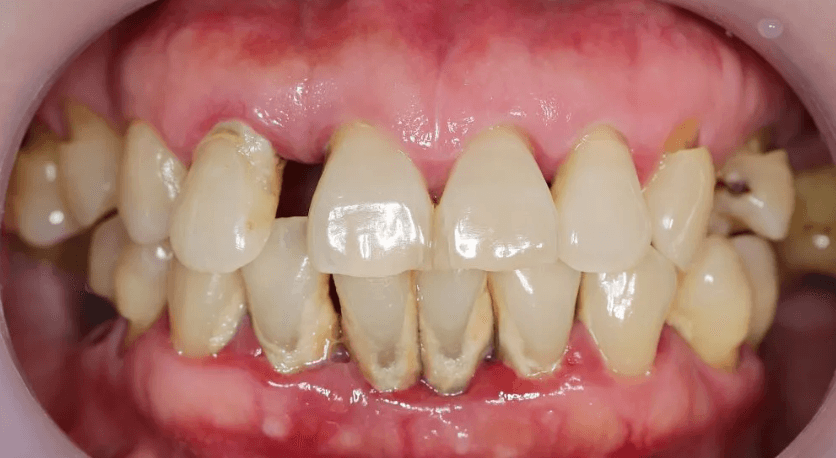
Periodontal disease, commonly known as gum disease, is a chronic bacterial infection that affects the gum tissue and bone that supports teeth. Left untreated can lead to tooth loss and other serious health problems.
Types of periodontal disease
There are two types of periodontal disease: gingivitis and periodontitis. Gingivitis is the early stage of gum disease, where the gums become red, swollen, and bleed easily. Gingivitis can be reversed with proper dental care and regular cleanings. However, if left untreated, it can progress into periodontitis.
When does Periodontitis occur?
Periodontitis occurs when the infection spreads beneath the gum line, causing the gums to pull away from the teeth and forming pockets. These pockets allow bacteria to thrive, further damaging bone and connective tissue that hold teeth in place. Over time, this can cause teeth to become loose and eventually fall out.
Risks
Risk factors for developing periodontal disease include poor oral hygiene, smoking, genetics, diabetes, hormonal changes, certain medications, and a weakened immune system. Symptoms of periodontal disease include bleeding gums, bad breath, loose teeth, receding gums, and changes in bite or tooth alignment.
Treatment
Treatment for periodontal disease depends on the severity of the infection. Mild cases may only require professional cleaning and improved oral hygiene habits, such as brushing twice daily and flossing daily. However, more severe cases may require scaling and root planing, a deep cleaning that removes plaque and tartar beneath the gum line, or even surgery to repair damaged tissue and bone.
Preventing periodontal disease involves practicing good oral hygiene habits, such as brushing and flossing regularly, using an antiseptic mouthwash, and visiting the dentist regularly for cleanings and checkups. Avoiding smoking and maintaining a healthy diet can also help reduce the risk of developing gum disease.
Summary
Periodontal disease is a severe condition that can affect oral and overall health. If you notice any symptoms of gum disease, it is essential to seek treatment from a dental professional as soon as possible. It prevents further damage and preserves your oral health. Practicing good oral hygiene habits and seeking regular dental care can help prevent periodontal disease. Furthermore, maintain a healthy smile for years to come.

0 Comments